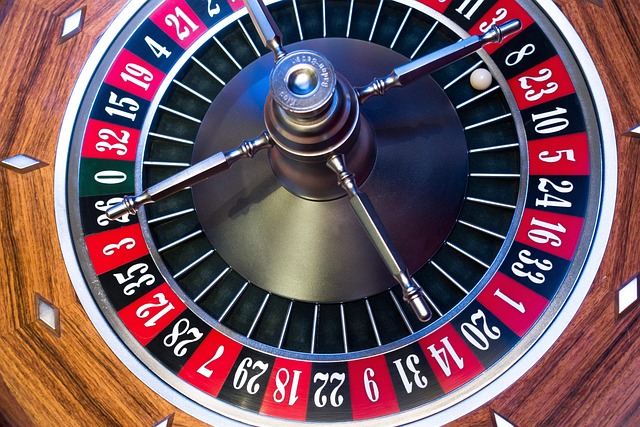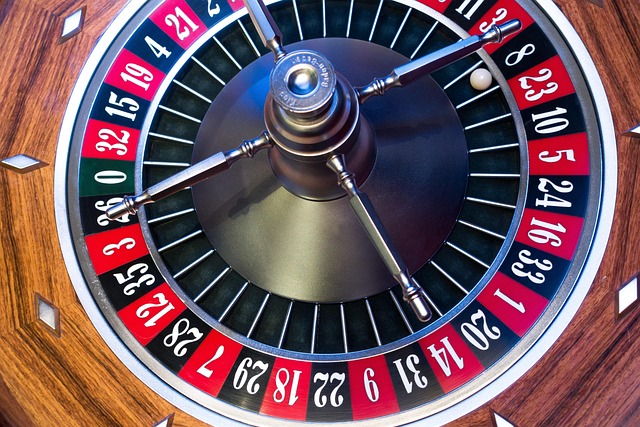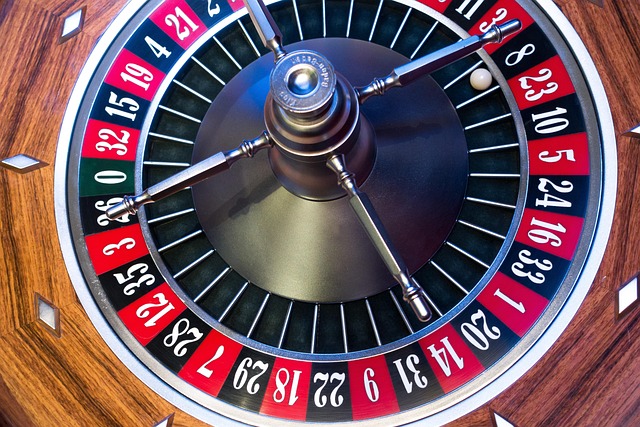Understanding Roulette Strategy involves grasping game odds and probabilities to make informed decisions. Different bet types offer varying returns, with straight-up bets having high payouts but low win chances, while even-money bets have better odds but lower rewards. Popular strategies like Martingale and Fibonacci are met with skepticism due to roulette's inherent randomness; they don't guarantee wins. For long-term success, players should set a budget, manage their bankroll, diversify bets, track results, identify trends, and be aware of risks. Regular reassessments and adaptability are crucial components for sustained success in Roulette Strategy.
Unleash your inner croupier with our comprehensive guide to Roulette Strategy. We’ll take you on a spin through the world of roulette, starting with a deep dive into understanding roulette odds and probability. Next, we explore popular strategies and their effectiveness, arming you with knowledge. Finally, discover how to implement a practical approach for long-term play. Master these tactics and boost your chances of winning at the wheel.
- Understanding Roulette Odds and Probability
- Popular Roulette Strategies and Their Effectiveness
- Implementing a Practical Roulette Strategy for Long-Term Play
Understanding Roulette Odds and Probability

Roulette is a game of chance, but understanding the odds and probability can be a key aspect in developing an effective roulette strategy. The most common betting types offer different returns based on where your bet lands. Straight-up bets have the highest payout but are also the least likely to win, while even-money bets like red/black or odd/even have better chances but lower rewards. Knowing these probabilities is crucial for any roulette strategy as it helps players make informed decisions.
For example, a bet on a single number has odds of 37:1 (in a standard American roulette wheel), meaning the casino keeps 36 units out of every 37 possible outcomes. By contrast, betting on red or black has odds of 1:1, and even-money bets generally offer higher return rates despite lower winning chances. Understanding these probabilities can help players choose bets that align with their desired risk level and potential reward, a vital step in crafting any successful roulette strategy.
Popular Roulette Strategies and Their Effectiveness

Roulette, a game of chance and precision, has captivated players for centuries with its seemingly unpredictable outcomes. This allure has birthed numerous self-proclaimed roulette strategies, each claiming to offer an edge over the wheel. However, it’s essential to approach these strategies with a critical eye, as their effectiveness is often debated.
Some popular options include the Martingale System, where bettors double their stakes after each loss, aiming to regain losses and profit from a potential win. Another well-known strategy, the Fibonacci System, involves betting on numbers based on a sequence of previous bets, with each bet being the sum of the previous two. While these strategies have their proponents, they don’t guarantee success. Roulette is inherently random, making it challenging to predict outcomes consistently. Therefore, any claimed ‘surefire’ roulette strategy should be approached with skepticism, and players are advised to manage their bankroll effectively and understand the game’s inherent risks.
Implementing a Practical Roulette Strategy for Long-Term Play

Implementing a practical roulette strategy is key for players aiming for long-term success at the table. While there’s no guaranteed method to beat the wheel, adopting a strategic approach can enhance your overall experience and potentially increase your chances of winning. One effective strategy involves setting a budget and sticking to it, determining a specific number of spins per session to manage your bankroll effectively. Diversifying your bets by including both even-money wagers (red/black, odd/even) and straight bets can also mitigate risk.
Additionally, keeping track of past results and identifying trends is beneficial. Some players utilize systems like the Martingale strategy, where you double your bet after a loss, but it’s crucial to play responsibly and understand the potential drawbacks. Regularly reassessing your approach, adapting to different game dynamics, and knowing when to walk away are essential components for sustained success in roulette.
Roulette, a game of chance and skill, offers players numerous strategies to enhance their experience. By understanding basic odds and probability, one can make informed decisions. Popular strategies, while debatable for their effectiveness, provide a framework for approach. Ultimately, adopting a practical, disciplined approach tailored to individual play styles is key to long-term success in the world of roulette strategy.






